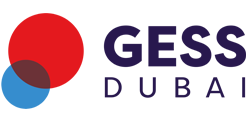Need for 110 more schools: A look into online schooling
With high costs of education and thinking about how much a student can actually learn in campus, online courses have become popular.
If the long-term growth trend of a seven per cent increase in student enrollments in private schools continues until when Dubai wishes to host World Expo 2020, Dubai’s private schools will have a student population of more than 360,000. This is a 60 per cent increase from the 2012/13 student population and will require the equivalent of 110 new schools to be established.
“We are on the verge of a very exciting time for education. A better version of higher education will come and existing institutions will be forced to change,” said Ben Nelson, Founder and CEO, Minerva Project, USA. A startup that is set to launch in the United States by the next academic year, Nelson said the Minerva project is something of an elite global university.
With high costs of education and thinking about how much a student can actually learn in campus, online courses have become popular.
Nelson was speaking at the second Education Investment in the Middle East Conference organised at The Dubai Mall, Address Hotel on October 21. Apart from the growth of the education sector in the UAE, and online universities, the conference also touched upon the changing trends in higher education, especially online schooling.
Experts suggested that education is growing dramatically in the UAE. According to a report released by the Knowledge and Human Development Authority (KHDA), 88 per cent of Dubai’s school students are enrolled in 153 private schools including 57 per cent of all Emirati students. Over the past decade, Dubai’s private school student population has grown by an average of seven per cent per year to a total of 225,099 students in 2012/13. UK, Indian and United States curriculum schools share 81 per cent of the student enrollments while 71 per cent of students pay less than Dh20,000 per year in tuition fees. School inspections and international assessment data show improvement in the quality of education and performance of students over the past five years.
Of the four main curricula (UK, Indian, US and Private MoE), UK curriculum schools are experiencing the highest growth in student enrollments and this trend is expected to continue. Nearly all of the recent growth in student enrolments is from students living in the newer areas of Dubai that border Al Khail and Mohammed bin Zayed Road from Jebel Ali through to Mirdif. This is the area of current demand for new schools to be built.
There is an increase in demand for schools in Abu Dhabi, too. Tareq Al Ameri, Promotion and Business Development Division Manager at Abu Dhabi Education Council’s (Adec’s) Private School and Quality Assurance said: “There is a rising demand for private schools. In an effort to keep up with the annual growth rate of five per cent for more private schools across the Emirate of Abu Dhabi, Adec fully supports investors/operators in the private school sector. This is done by providing guidance on complying with regulation requirements, offering long-term land lease agreements with nominal rental fees, leasing ex-governmental school buildings for short term (until the school develops its new premises) and promoting transparency by publishing annual reports regarding private school market (number of students, number of new schools, average tuition fees).”
Dino Varkey, Chief Operating Officer of GEMS Education, the global K-12 said: “We are witnessing a shift in the attitudes and mind-sets of those that matter. Today, there is a collective willingness to cast aside the traditional, intellectual debates about the role of private sector in education, in favour of an approach that seeks to bring together powerful partnerships in any, and all contexts, so that we may address the most significant challenge of this century – Quality Education for All,” said Varkey.
“This presents an opportunity for private investors to deploy capital in higher education institutions that can provide sustained and predictable income growth,” said Ashwin Assomull, partner at The Parthenon Group and speaker at the Conference. “The rate of economic growth in this region, coupled with increased affluence within the population, has spurred the growth of the private education sector.”
A recent report by The Parthenon Group found that an increasing number of international K-12 institutions and universities are entering the GCC as it represents a huge opportunity to increase their global reach as well as improve financial returns. The report found that within the private sector, “Western private” institutions are growing more than twice as fast as the rest of the higher education market.
Demand for foreign universities
Western branded higher education institutions are growing at a rate of 15 per cent per annum in the UAE. There are 120,000 students enrolled in the region’s higher education sector, of which 78,000 are in private institutions. Higher education penetration is growing significantly in the region with the UAE hosting 37 international branch campuses; the highest number in the world. Ashwin Assomull, Partner, the Parthenon Group, UAE said: “More favourable regulations have been set up to welcome western and foreign language universities,” said Assomull. He added that the early year schools and nurseries market is comparatively small and fragmented.





